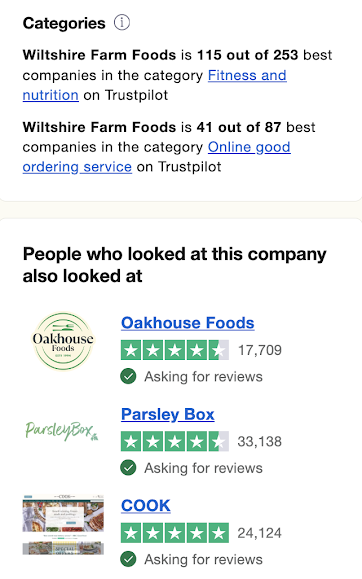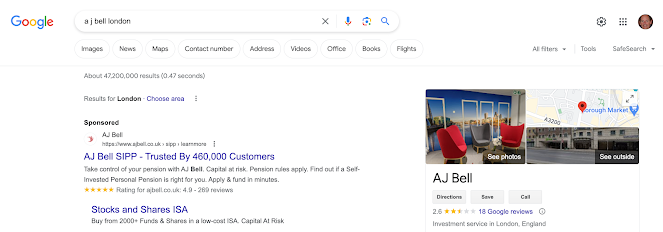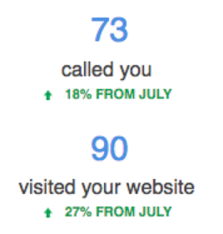Notice we say 'The...guide' not 'A...guide'. HelpHound has been advising businesses about reviews since the middle of first decade of this century. There are more than a million words on this blog alone - Tolstoy's 'War & Peace' contains a mere 587,000!
So: follow the advice contained in this article and the links embedded in it and your business will thrive - at least as far as reviews and their potential to drive new customers are concerned. On the other hand, continue to ignore the power of reviews or listen to a salesperson from a review site and opportunities of all kinds will be missed and your competitors will gain a head start that may become insurmountable.
Note: HelpHound is all about Review Management, a term we coined back in 2009, just eighteen months after Google first introduced their review function. Back then we ran a review site - similar to Trustpilot, Feefo, Yelp and the others, but we soon realised that professional and service businesses were always going to be served best by Google reviews, because consumers were being given a one-stop review service with visibility and credibility that could never be matched by a review site.
We might have simply folded the business right then but for the fact that we realised that Google had no intention of moderating - another HelpHound word meaning 'ensuring the factual accuracy and veracity of' - their reviews and that if they were to be of significant value to the business under review and the readers of those reviews then moderation would be essential. Moderation remains the core of the value we add for all our stakeholders - clients, their customers, reviewers and consumers, not to mention Google, relying on reviews to be accurate - right up until today.
Lastly: you only need to click on the hyperlinks if you wish to mine down into the subject under discussion. We recommend you read all of this article before you do so. And then speak to one of us.
In the beginning
It became rapidly apparent that professional and service business reviews were of immense value to consumers: far more so than product reviews (helpful as those might be). A consumer requiring a medical, financial, legal or educational professional to look after their health, investments, legal issues or children's education was going to pay far more attention to, and have a far greater requirement for, reliable reviews.
Put simply: a product with a headline review score of 4 out of 5 will sell and the underlying reviews are highly unlikely to be read, a service needs to score 4.8+ and the reviews themselves will be read.
Your business's starting point
Will be one of the following...
- It has no reviews, or very few
- It has many Google reviews - because it has realised the value of reviews and, as a result, has been inviting selected customers* to write reviews to Google
- It has focussed on a review site - the likes of Trustpilot or Feefo or Reviews.io
*those reading this article are likely to describe their customers as 'clients' or 'patients', in the main. For simplicity's sake we will refer to them as either 'customers' or 'consumers' depending on the context.
From the very beginning, it became clear that businesses in category 2 gained far more business than the equivalent businesses in categories 1 and 3.
Category 1 businesses were either very small, very new or very nervous. The first of those three are self-explanatory, the third - 'very nervous' requires further explanation: they were - are - nervous of having inaccurate or misleading (and therefore damaging, from the business's point-of-view) reviews written to Google. And they are right to be: we would never advocate that a business in a complex area, easily misunderstood by the layman, invite customers to write a Google review about its service without some form of safety net. Hence moderation (see more on this below).
Category 1 businesses were missing out of the power of Google reviews to bring new customers to their door via search and Category 3 businesses were expending energy acquiring reviews that were going to be seen by far fewer potential customers - at least until they reached the business's website - than if those reviews were posted to Google. Of course, a 4.7 rating of a shirt will support sales on your website, but we're not talking about online retailers here - we're talking about professional services, and those need the superior visibility and influence of Google.
Moderation
It comes under the heading of 'boring, but absolutely essential', like making sure there's engine oil and anti-freeze in your car. It means: getting the review written in private first and then vetted for accuracy by an independent intermediary - in this case, HelpHound - before it is subsequently published on the business's own website and on Google.
The business's website?
The reviews hosted on this Harley Street clinic's website are read by prospective patients (29 readers have voted the 'Life Changing' review at bottom right 'helpful') - do we think that they are convincing? you read them and be the judge
Once you accept that reviews drive business - enquiries, calls and clicks - then it becomes self-evident that having those reviews prominently displayed on the business's website is a good thing. The fact that this allows the business to capture valuable data on its customer's opinions and make sure those opinions are not damagingly misleading is a double benefit.
Obeying/breaking the law
here we are talking about Category 2 businesses. Many currently break the law, which states that businesses must not...
- 'Cherry-pick' customers to write reviews. You are not allowed to invite happy customers to write reviews - - anywhere - to the exclusion of other customers or stakeholders
- 'Gate' - gating means employing any mechanism that filters customers to establish which are most likely to write a 5* review of the business. A common way of gating includes sending out a customer survey and then only inviting those who indicate 100% satisfaction to write a review
Category 3 - review sites
Businesses that are paying for review sites fall into two distinct categories...
1. Those in retail - online or otherwise - need a review score to support sales. There's no doubt that a Trustpilot 'badge' next to a product reassures purchasers of products (as opposed to services).
2. Those in the services and professions - that have either been 'sold to' by the review sites (they all spend impressive amounts on sales and marketing) or have simply failed to find a better solution. The latter - the professions and allied service businesses - should focus on getting reviews to Google and their own websites. This advice is unequivocal: Google's reviews have an unrivalled profile in search, and this, coupled with their credibility (the fact that the business is not paying them to host reviews is part of that) makes it a hands-down winner where impact and effectiveness are concerned.
What should your business do?
No matter what category your business currently finds itself in, it should look to adopt professional review management going forwards. Then it will...
- get significant numbers of reviews on its own website
- get significant numbers of them copied to Google
- be fully compliant with UK and EU law - from day one
- enhance its SEO
- stand out in every search
- receive measurably more clicks and calls
- have wonderful ammunition for sales and marketing
- make your management and staff proud
- a steady flow of reviews to your website and your Google listing
- an increasing flow of enquiries through both
- Results - they're why you have read this far!
- Compliance - boring but essential
- Moderation - less boring, but equally essential










No comments:
Post a Comment
HelpHound is all about feedback, so please feel free to comment here...